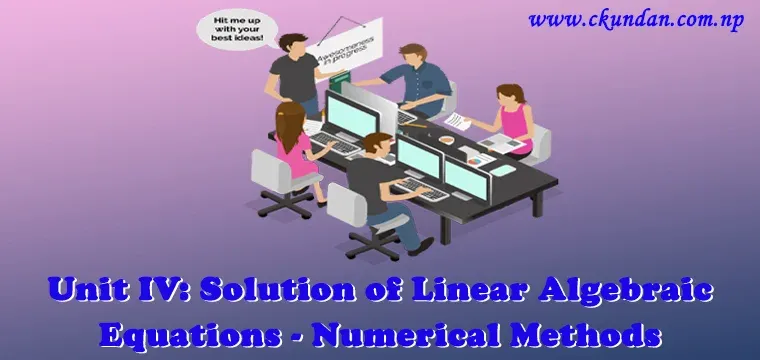The term "algebraic equation" refers to a formulation of the equality of two expressions using the algebraic operations of addition, subtraction, multiplication, division, raising to a power, and extraction of a root on a set of variables. The process of locating a number or group of numbers that, when substituted for the variables in the equation, reduce it to an identity is known as the solution of an algebraic equation. A root of the equation is an integer like this.
According to the number of solutions, systems of linear algebraic equations are split into the following types:
- a compatible system is a system of linear equations having at least one solution;
- an incompatible (or contradictory) system is a system having no solution;
- a determinate system is a system having a unique solution;
- an indeterminate system is a system having more than one solution.
Every indeterminate system of linear equations has an unlimited number of solutions if one takes into account solutions of a system with values of the unknowns in a specified number field (or in any arbitrary infinite field). The type of a system of linear algebraic equations does not change when the provided field P is expanded, in contrast to equations of degree greater than one. Therefore, a system that is incompatible with another system cannot become compatible with it, and a system that is determined cannot become uncertain. However, this expands the possible solutions for an indeterminate system.
In this “Solution of Linear Algebraic Equations - Numerical Methods” you will learn about the following topics:
- Matrices and their properties
- Elimination methods, Gauss Jordan method, pivoting
- Method of factorization: Dolittle, Crout’s and Cholesky’s methods
- The inverse of a matrix
- Ill-Conditioned Systems
- Iterative methods: Gauss Jacobi, Gauss seidel, Relaxation methods
- Power method
==== Point to Note ====
The article Solution of Linear Algebraic Equations - Numerical Methods is contributed by Namrata Chaudhary, a student of Lumbini Engineering College (LEC).
If you like to contribute, you can mail us BCA Notes, BCA Question Collections, BCA Related Information, and Latest Technology Information at [email protected].
See your article appearing on BCA Notes by Kundan Chaudhary's main page with your designation and help other BCA Students to excel.
Please write comments if you find anything incorrect, or if you want to share more information about the topic discussed above.







![BCA 1st Semester Question Papers Pdf [Updated]](https://blogger.googleusercontent.com/img/b/R29vZ2xl/AVvXsEjP3Me_J0B0ZWTmnrJmogmmrj5uN8yT0cMoGo1Ay15Rfzm_J76hOoUKXMYOGidJcr1xf-9inJ4Ea-i01MtvHTeQnGiWm98TSUK5XAYlpuXiszuRUrY6kJVhxEl5Rar4F1_Rh-S9d6oY_Kk/w72-h72-p-k-no-nu/BCA+1st+Semester+Question+Papers+Pdf.webp)
0 Comments